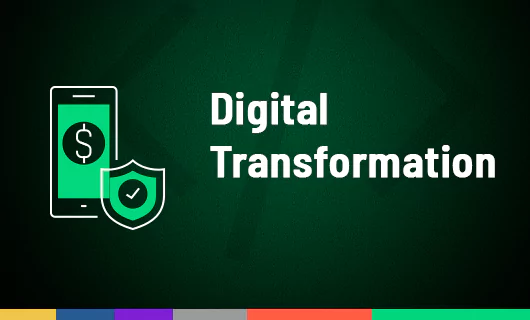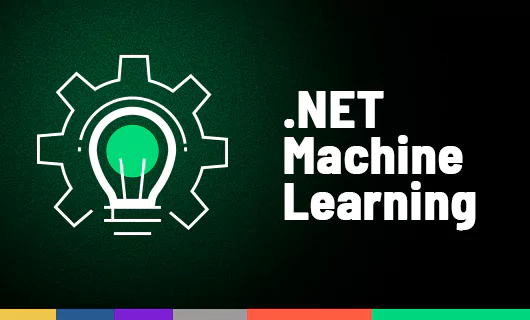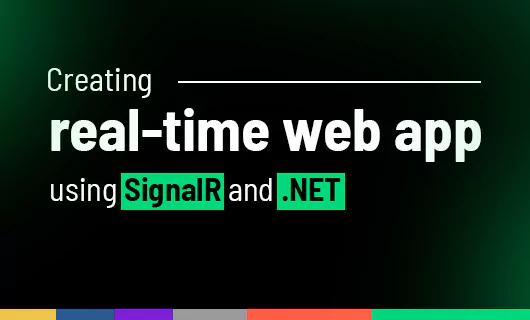As one of the most technically-inclined industries in the world, it’s no wonder that FinTech service providers are always on the lookout for the latest technological trends. Staying on top of the most up to date features won’t just make a difference to businesses; it can also enhance security and improve productivity. In this article, we’ll be taking a look at the top technological trends in financial services in 2023, and why they can be beneficial to your business.
Artificial Intelligence (AI)
Artificial Intelligence (AI) is one of the most significant software trends today. AI is a branch of computer science that focuses on developing intelligent machines that can learn, reason, and make decisions. It involves the creation of algorithms and models that allow computers to perform tasks that typically require human intelligence, such as visual perception, speech recognition, decision-making, and language translation. It has been around for several decades, but recent advances in computing power, data storage, and machine learning algorithms have led to significant breakthroughs in AI technology. Today, AI is being used in a wide range of applications, including natural language processing, computer vision, autonomous vehicles, robotics, and many others.
- Task automation: One of the most significant benefits of AI is its ability to automate tasks that were previously performed by humans. This includes tasks such as data entry, data analysis, customer service, and even medical diagnosis. By automating these tasks, companies can improve efficiency, reduce costs, and free up their employees to focus on more high-value tasks.
- New services: AI is also being used to create new products and services that were previously impossible. For example, AI-powered personal assistants can help users manage their schedules, answer questions, and provide recommendations. AI-powered chatbots can provide customer service around the clock, and AI-powered search engines can help users find information more quickly and accurately.
- The challenge: One of the biggest challenges facing AI today is the need for large amounts of data to train machine learning models. However, as more data becomes available, AI will continue to improve and become more powerful. This will lead to new opportunities for businesses and individuals, and will likely transform many industries in the years to come.
Blockchain
Blockchain is a digital ledger technology that allows for secure, transparent and decentralized data storage and transactions. Originally developed to support cryptocurrencies like Bitcoin, blockchain has now emerged as a popular technology for building decentralized applications and creating trusted digital identities, among other use cases.
- Trust and transparency: Key advantages of blockchain technology include its ability to ensure trust and transparency in transactions. By storing data across a network of computers, rather than in a single central location, blockchain can provide a tamper-proof record of all transactions that have taken place. This makes it particularly useful in industries such as finance, where security and transparency are critical.
- No middle man: Further advantage of blockchain technology is its ability to eliminate the need for intermediaries in transactions. With blockchain, parties can interact directly with each other, reducing the time and cost associated with intermediaries such as banks and other financial institutions.
- Beyond finance: blockchain is being explored for a variety of other use cases, including supply chain management, healthcare, real estate, and voting systems. In supply chain management, blockchain can be used to track the movement of goods and verify their authenticity, reducing the risk of fraud and counterfeiting. In healthcare, blockchain can be used to securely store and share patient data, allowing for more efficient and accurate diagnoses and treatment. In real estate, blockchain can be used to streamline the process of buying and selling property, making it more efficient and reducing the risk of fraud.
Cloud computing
Cloud computing is a software trend that has revolutionized the way businesses operate. It involves the delivery of computing services such as servers, storage, databases, networking, software, analytics, and intelligence over the internet (the cloud) to provide faster innovation, flexible resources, and economies of scale.
- Scale on demand: Cloud computing provides the ability to scale resources up and down according to demand. This means that businesses can quickly scale up or down their computing resources based on their needs, without having to make significant capital investments in infrastructure. This makes it easier and more cost-effective for businesses to launch new products and services, as well as to handle fluctuating demand.
- Online tools: It also provides ease of collaboration. With cloud-based tools, teams can work together on projects in real-time, no matter where they are located. This makes it easier to share resources, information, and expertise, which in turn can improve productivity and speed up innovation.
- Increased safety: Cloud increases security and reliability for data storage and management. With cloud-based solutions, businesses can rely on the expertise of dedicated cloud providers to ensure their data is safe and secure. Cloud providers invest heavily in security and employ top-level experts to maintain the integrity of their systems, so businesses can be confident that their data is protected.
Robotic Process Automation (RPA)
Robotic Process Automation (RPA) is a software trend that has gained significant momentum in recent years. Essentially, RPA is a form of artificial intelligence that is designed to automate repetitive and manual tasks that are typically performed by humans.
- Lower costs: With RPA, businesses can reduce their operational costs and improve efficiency by automating processes that are prone to errors or require a significant amount of time.
- Integration: RPA can work with existing IT systems, making it a cost-effective solution for businesses that want to automate processes without having to overhaul their entire infrastructure. The software can be programmed to perform a wide variety of tasks, such as data entry, customer onboarding, and even more complex activities like fraud detection and risk management.
- Focus on core business: It can free up human resources to focus on higher-level tasks that require creativity and decision-making skills. By automating repetitive tasks, employees can be redeployed to more strategic areas of the business where they can have a greater impact.
- Less generic mistakes: RPA can asignificantly improve accuracy and reduce the risk of errors. Because the software is programmed to follow specific rules and procedures, it is much less likely to make mistakes than humans, who may be prone to fatigue or distraction.
RPA is a software trend that has the potential to transform the way that businesses operate. By automating repetitive tasks, businesses can reduce their costs, improve efficiency, and free up human resources to focus on more strategic activities. As RPA technology continues to evolve, it is likely that we will see even more advanced applications emerge, which will further enhance the benefits of this powerful software trend.
Big Data analytics
Big Data Analytics refers to the process of collecting, processing, and analyzing large and complex data sets to extract insights, patterns, and trends that can help organizations make informed business decisions. With the increasing amount of data being generated every day, it has become essential for businesses to have the right tools and technologies in place to handle and analyze these vast amounts of data.
- Better overview: One of the main benefits of Big Data Analytics is that it allows organizations to gain a better understanding of their customers’ behavior and preferences. By analyzing data from various sources, such as social media, online transactions, and customer feedback, businesses can gain valuable insights into their customers’ needs and preferences. This, in turn, can help them develop targeted marketing campaigns, tailor their products and services to meet customer demands, and improve customer engagement.
- Improved efficiency: Big Data Analytics can help organizations optimize their operations and improve efficiency. By analyzing data from various systems and processes, such as supply chain management, logistics, and manufacturing, businesses can identify bottlenecks, inefficiencies, and areas for improvement. This can help them streamline their operations, reduce costs, and increase productivity.
- Risk reduction: It can help businesses identify and mitigate risks. By analyzing data from various sources, such as financial markets, economic trends, and customer behavior, businesses can identify potential risks and take proactive measures to minimize them. This can help them protect their assets, reduce their exposure to risks, and improve their overall risk management strategy.
Internet of Things (IoT)
The Internet of Things (IoT) is a rapidly growing trend in the technology world, and it is becoming increasingly popular in the financial services sector. IoT is a term used to describe the interconnectivity of devices and appliances, which are capable of sharing data with each other over a network, without the need for human intervention.
- Data acquisition: In financial services, IoT devices can be used to gather data about customer behavior and preferences, enabling companies to provide better services and products. For example, wearable devices such as fitness trackers and smartwatches can be used to track a customer’s spending patterns and notify them of any unusual activity on their accounts.
- Automation: IoT can also be used to simplify and automate the financial transaction process. For instance, IoT-enabled devices can be used to process payments and transactions, enabling customers to make purchases with a simple tap or swipe of their device.
- Monitoring: Furthermore, IoT devices can be used to monitor and gather data about the performance of financial services products, such as credit cards and loans. This data can then be used to analyze customer behavior and preferences, enabling companies to improve their products and services to better meet the needs of their customers. By leveraging IoT devices and technologies, companies can improve their productivity, enhance their services, and increase customer satisfaction.
Biometrics
Biometrics is a software trend that involves using unique physical and behavioral characteristics to identify and authenticate individuals. Examples of biometric identifiers include fingerprints, facial recognition, voice recognition, iris scans, and even DNA analysis.In recent years, biometric authentication has become increasingly popular in various industries, including finance, healthcare, and government.
- Convinience: Biometric technology offers several advantages over traditional authentication methods, such as passwords and PINs, which can be easily forgotten, shared, or stolen. Biometric authentication is more secure, convenient, and accurate than traditional methods.
- Security: The technology is also being used to enhance security in various other applications. For example, biometric sensors can be used to monitor and analyze employee behavior, such as keystroke patterns or mouse movements, to identify unusual or suspicious activity. Biometrics can also be used in access control systems to grant or deny access to specific areas based on an individual’s biometric data.
There are also concerns about the privacy implications of biometric technology. Biometric data is sensitive information that can be used to identify individuals and potentially be used for nefarious purposes. As such, there are regulations and standards in place to ensure the responsible use and storage of biometric data.
Summary
These are just a selection of the latest trends available to the financial services sector and with them, more and more businesses are finding their productivity increasing. As more services enter the market and technologies are improved upon, you should certainly expect the market to be introduced to tech that benefits all involved, even if the target market for the technology wasn’t even FinTech. The great thing about these types of technologies is that many will have transferrable properties; allowing you to take advantage of key features and enhance your productivity with minimal fuss.





